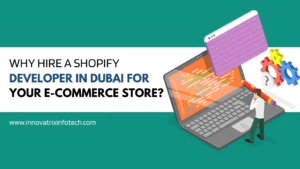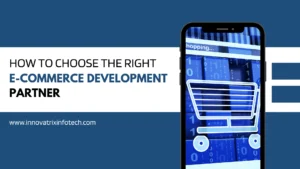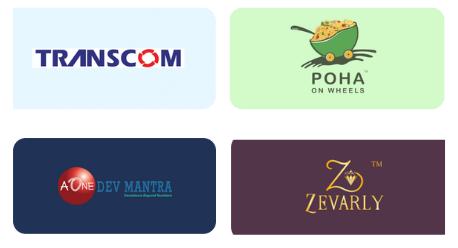Different types of mobile applications and their uses
Hi, this is Rishabh Sethia, with 8 years of experience in mobile app and software development. Today, I will explain the different types of mobile applications and their uses. Mobile applications have been continuously evolving with the latest technology trends. They have become the basic requirements for smartphone users. Mobile app classification helps users become familiar with the working patterns of the apps. In this blog, I will enumerate the mobile app categories and their relevance in recent times. Moreover, mobile app functionalities contribute toward the feasible access of products and services in the digital world. An app-type directory helps to provide detailed information about the right app for the user.
According to statistical data, an individual uses nine apps in a day. An individual uses approximately 30 mobile apps per month. In the past few years, mobile app classification has helped the user in choosing mobile apps of their own choice and values. Mobile apps generated around $935 billion in revenue in 2023.
Here are popular mobile applications and their uses:
Entertainment apps:
Entertainment apps are developed to provide users with relaxation and enjoyment. The popular app types for entertainment purposes are Amazon Prime, Spotify, Netflix, Sony Liv, etc. The user interface of mobile apps is visually appealing and eye-catching. The main uses of entertainment apps are video streaming, music streaming, live streaming, etc. The objective of these apps is to provide joy while watching movies, listening to music, and giving suggestions while live streaming shows.
Productivity Apps
Productivity apps are responsible for the efficient management and organization of projects. They are incorporated with various credentials, such as calendars, document sharing, work management, etc. Productivity apps help improve the work-life balance of an individual. The top app types for productivity are Microsoft Office, Slack, Trello, etc. Finding the right app type for an individual’s productivity is a complex process. However, consistent use of a single productivity app helps define the work dynamics of the individual. Productivity apps help in creating to-do lists, putting reminders, sharing documents, communicating with team members, recording ideas, etc.
Educational Apps
Educational Apps are designed to bridge the gap between rural and urban students. It aimed to enable educational access beyond the geographical boundary. The recommended app types for education are Physics Wallah, Unacademy, Vedanta, etc. These educational apps offer tutorials for various courses, interactive sessions with teachers, etc. The mobile apps for the education sector are giving momentum to skill-based learning and engaging classes.
Social media apps
Social media apps are becoming the powerhouse for sharing information and personal engagements. They tend to influence a large section of people with one tap. Global connectivity is increasing with the optimum use of social media apps. However, these apps enable the exchange of ideas, suggestions, feedback, etc., for business expansion. Mobile app functionalities of social media widen the scope of sharing images, videos, documents, reels, etc. Furthermore, it facilitates trust and awareness among the users. Professional and personal networking becomes viable with social media. Instagram, Facebook, LinkedIn, etc. are the popular mobile app types for social media networking.
Health and fitness apps
Health and fitness apps are popular among today’s generation. The purpose of these apps is to foster the well-being of individuals. It helps to regulate the physical and mental well-being of the individual. Regular notification pop-ups assist individuals in ensuring healthy living. Health and fitness apps are becoming must-have mobile apps for securing good health. Fitbit, Google Fit, Calm, etc. are the prominent health and fitness apps for enhancing the physical and mental health of the individual. The objective of mobile apps focused on health and fitness parameters is to regulate physical activity, meditation, calorie intake, sleep timings, etc.
Gaming apps
Gaming apps are driving the interests of sports enthusiasts. They are built in such a way that they give impetus to the cognitive abilities of the individual. Multiple gaming mobile app examples boost leisure time and enjoyment. The augmented reality feature is the latest update in the gaming apps. The popularly used gaming apps are PUBG, Clash of Clans, 2048, Among Us, Candy Crush, etc. These mobile apps not only facilitate cognitive well-being but also contribute to a stress-free lifestyle.
E-commerce apps
E-commerce apps have led to a paradigm shift in the shopping style of individuals. It enables the buying and selling of products and services online. The ability to choose products and services at their fingertips allows customers to browse regularly. Consequently, it led to a rise in revenue generation and digital marketing on a large scale through ads. There are multiple benefits to e-commerce apps, such as secured payment, instant accessibility, brand awareness, etc. The mobile app uses the user’s searching algorithm to display notifications about certain products. The e-commerce mobile apps are aligning business protocols and customer loyalty. Additionally, they are becoming the best app types for business expansion globally. The most popular mobile apps for e-commerce are Flipkart, Lenskart, Amazon, Shopify, etc.
Finance apps
Finance apps are essential for mobile app users to track their financial losses and gains. They manage the buying potential of the individual. These mobile apps monitor the investment and banking details of individuals. Finance apps harness accountability and transparency in the financial domain. Moreover, these mobile apps offer numerous options like cashback, credit score, credential coins, etc. These facilities widen the usability and accessibility of the finance apps. The commonly used finance apps are Cred, Google Pay, Bhim UPI, etc.
Travel apps
Travel apps are streamlining transportation and accommodation options for travellers. Exploration of destinations and booking of guides become feasible with travel apps. The travel app-type directory manages the itinerary for visits across the globe. They plan the trip seamlessly beyond the geographical territory of the place. Travel apps provide cost-effective methods of booking flights, trains, or buses. The incorporation of various parameters like weather forecasting, geolocation, instant booking, customized booking, etc. is leading to the wide use of travel apps. The mobile app recommendations for travel are MakeMyTrip, Airbnd, Booking.com, etc.
Business apps
Business apps ensure direct communication between business vendors, employers, and customers. They aid in digital marketing, customer engagement, competitive analysis, etc. Business apps increase the online visibility of the business. They contribute towards brand awareness, workplace management, and the financial growth of the company. The best app types for businesses are Google Workspace, Amazon Web Services, Zoom Workspace, etc. However, business apps have applicant tracking and employer tracking systems to manage their workforce.
Utility apps
Utility apps are customized in such a way that they simplify ordinary activities. These apps are helpful for smooth navigation, weather forecasts, project management, day-to-day tasks, etc. The utility apps empower the working dimension of the individual. The functional needs of the user are fulfilled by the utility apps. The utility mobile app examples are Google Assistant, Google Find My Device, Doc-Scanner, etc. These are the must-have mobile apps for strengthening the viability of the individual.
Communication apps
Communication apps are essential for managing interactions and conversations with people. These apps offer instant calling and messaging for certain tasks. Communication apps ensure the healthy exchange of ideas and values. The communication app type comparison is based on the user interface and user experience. People tend to download communication mobile apps that are convenient to them. Mobile app suggestions for communication are Signal, WhatsApp, Telegram, Gmail, etc. Therefore, communication apps are vital for enhancing connections with other people across the world.
Lifestyle apps
The lifestyle app focuses on improving the daily lives of its users. The management of daily tasks, goals, and diet is fulfilled by lifestyle apps. The standard of living is optimized with the help of lifestyle apps. The customization of mobile apps for healthy living is widely used by people. It helps to live smoothly in a chaotic world. Some of the popular lifestyle apps to use are Life360, Sleep Cycle, Pinterest, etc.
Here are the top app types for productivity enhancement:
Productivity enhancement is enabled with the use of utility apps, finance apps, and lifestyle apps. These mobile applications help to improve individual performance. The mobile app selection guide is based on functionality and security parameters. Choosing mobile apps for personal benefit is tailored through preferences and using the potential of the individual. Consequently, it will harness the productivity and integrity of users in the digital world.
Conclusion
Mobile app suggestions vary according to the user. The mobile apps that enhance the performance of individuals are installed on smartphones. The variety of mobile applications is vast; some people prefer entertainment and gaming apps over utility and lifestyle apps. The multitude of mobile apps is changing consistently according to living standards. Mobile apps play a pivotal role in the overall development of an individual. Choose wisely which mobile app type will improve your efficiency and reliability.








